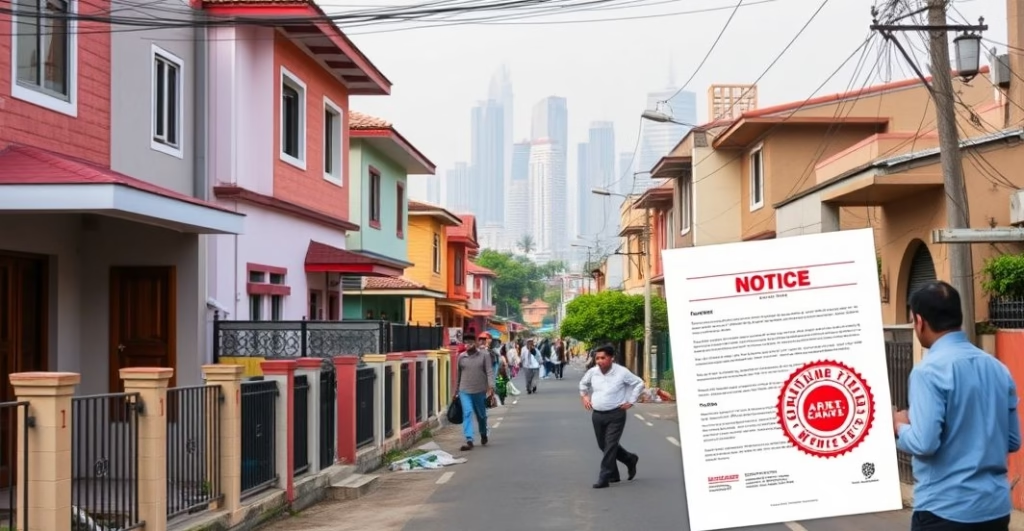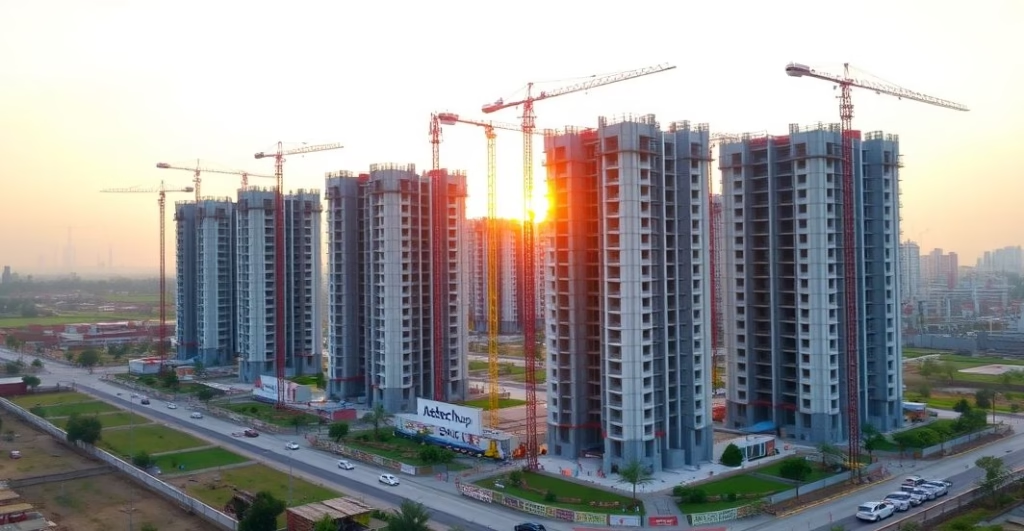Auto-published by Growwh – a smarter way to scale content and marketing. Want to know more? Chat with us.
A Delhi firm alleges Rs 1.6 crore fraud in a Noida World One Alphathum commercial deal. Learn red flags, payment safety and why property diligence matters.
Overview: What Happened in Noida World One
A Delhi-based firm has alleged a Rs 1.6 crore fraud involving a commercial unit at Alphathum, Noida World One. The complaint claims misrepresentation of ownership, diversion of advance payments, missing receipts and CCTV evidence, and the alleged involvement of multiple representatives. An FIR was registered, and the case highlights how commercial buyers can become vulnerable when documentation, verification and payment trails are incomplete.
Why this Case Matters for Commercial Buyers
Commercial property transactions often involve higher sums, multiple intermediaries and complex paperwork. This makes them attractive targets for fraud. The Alphathum case underscores these recurring risks: unverified ownership claims, payments made without escrow or registered agreements, and pressure tactics to hand over advances.
Top Red Flags to Watch For
- Verbal promises without a written, signed agreement.
- Payments requested in cash or via personal cheques with no official receipts.
- Representatives who cannot produce company authorization or KYC details.
- Reluctance to provide CCTV footage, payment receipts or official receipts.
- Properties shown as jointly managed or handled by third parties without written agency clauses.
- Sales meetings held in unofficial locations or offices that later disavow the transaction.
Immediate Steps if You Suspect Fraud
- Stop sending further payments and preserve all communication (emails, WhatsApp chats, receipts).
- Notify your bank immediately to request stop-payment or trace funds if possible.
- Collect and securely store proof: cheques, agreements, CCTV clips, transaction videos and receipts.
- File a police complaint/FIR with full documentation and ask for a written acknowledgement.
- Engage a legal advisor experienced in real estate and criminal recovery to evaluate next steps.
Preventive Checklist Before Paying an Advance
Use this checklist to reduce risk before finalizing a commercial property deal:
- Verify title and ownership with the land records and the developer’s sales register.
- Obtain a signed provisional sale agreement or booking form that clearly specifies the property, price and payment schedule.
- Insist on payment through an escrow or developer’s bank account rather than personal accounts.
- Demand verifiable receipts and transaction references immediately after every payment.
- Confirm the identities and authority of sales personnel; request company IDs and authorization letters.
- Check the developer’s track record, previous projects, and any public complaints or litigation.
If you are an overseas investor or an NRI considering property in India, follow a rigorous verification process tailored to cross-border transactions—see detailed guidance on legal due diligence for NRI property buyers in India and use specialist advisory services to validate titles and permissions.
Practical Tips to Protect Your Investment
- Use lawyer-reviewed agreements and include clear breach and refund clauses for advance payments.
- Record in-person meetings and insist on company letterheads, stamped documents and sign-offs.
- Cross-check promoter identities, shareholder records and corporate registrations at the Registrar of Companies.
- Prefer staged payments linked to verifiable milestones and possession certificates.
Specific Advice for NRI Buyers and Long-Term Investors
NRI buyers should be particularly vigilant because cross-border transactions add complexity. Use specialised resources and local partners that understand both compliance and on-ground realities. Explore expert analysis such as NRI Realty Edge insights for buyers to understand KYC, power of attorney nuances and tax implications. For longer-term planning, integrate property decisions into a broader wealth strategy—learn how to future-proof your wealth with insights on Indian real estate in 2026 to align purchases with market trends and risk management.
How Developers and Brokers Can Rebuild Trust
Transparent processes protect both buyers and reputable builders. Recommended practices include:
- Maintaining an auditable payment trail (escrow accounts, bank transfers, official receipts).
- Providing authenticated title documents, clear ownership history and KYC of agents.
- Using digital contracts and e-signatures to reduce paperwork gaps and tampering risks.
- Establishing a grievance redressal mechanism and publicizing official contact points to deter misuse of offices for fraudulent deals.
Final Takeaway
The Alphathum allegation is a reminder: even reputed projects can be implicated in scams if intermediaries misrepresent facts or payment paths are insecure. Buyers should insist on written proof, verified ownership, and professional legal checks before transferring funds. Preserve all records and act quickly if you suspect wrongdoing—early action improves chances of recovery and resolution.
This article was auto-generated as part of a smart content campaign powered by Growwh.com. Curious how we do it? Chat with us to learn more about our content automation systems.


